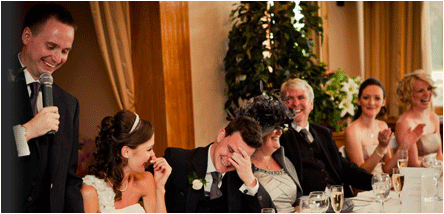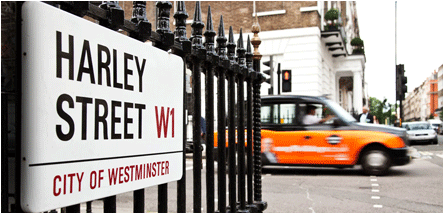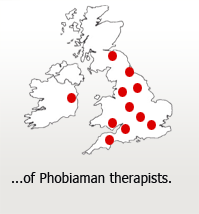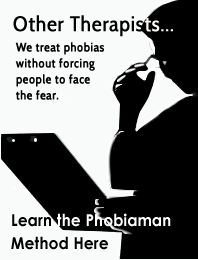Flying doesn’t have to feel like a nerve-wracking ordeal. If you’re an anxious flyer or nervous about stepping onto a plane, you’re not alone.
Millions of people experience flight anxiety and even panic attacks at the thought of taking off. The good news? You can learn how to manage your own feelings and overcome the fear of flying with a few practical, proven techniques.
In this guide, we’ll share 9 powerful tips that blend professional aviation insight, including those from Capt. Chesley “Sully” Sullenberger, the US Airways pilot who safely landed Flight 1549 on the Hudson River, with hundreds of souls saved.
We’ll also include some of the self-help strategies we’ve found useful to help you feel calm and in control on your next journey.
1. Understand Why Flying Feels Scary – And Why It’s Safe
It’s natural to feel nervous about flying – but fear doesn’t reflect reality. Commercial aviation is the safest ways to travel, with just one accident for every 6.4 million flights worldwide, according to the International Air Transport Association (IATA).
Capt. Chesley “Sully” Sullenberger reminds us:
“Airplanes are expertly designed, built, and operated, with lots of redundancy and many levels with huge margins of safety”
Learning more about how planes work and how flight attendants and cabin crew are trained to keep you safe can help you feel grounded. The FAA’s Passenger Safety Tips also offers clear, reassuring advice about air travel.
But if after learning all this, you find you are still nervous, it may suggest your fear requires the attention of a phobia specialist.
- If you would like to find out if our treatment program is going to be right for you, the first step is to call the PHOBIAMAN clinic on 0207 193 5194. Call and speak with one of our friendly therapists and we’ll see if we can help. Just call 0207 193 5194 and speak with a specialist today
2. Give Yourself Enough Time for a Calm Airport Experience
One of the biggest triggers for flight anxiety is feeling rushed. Arrive at the airport ahead of schedule so you have enough time to check in, go through security, and settle. Build in a buffer for the unexpected – traffic, queues, or last-minute changes.
When you’re early, you can enjoy a calmer airport experience:
- Sit in a quiet corner or lounge to relax before boarding.
- Stay hydrated by drinking water regularly (flying dehydrates you).
- Avoid stimulants like caffeine that may worsen nerves.
Sully says:
“I describe the perfect passenger as someone who shows up on time, knows what they’re doing, and follows crew directions…and most of all that they haven’t forgotten to pack their “patience” when they leave for the airport…”
- If airports make you feel nervous, read about claustrophobia hypnotherapy treatment to manage crowded spaces calmly.
3. Choose Your Seat Wisely – Aisle, Exit Row or Over the Wing?
Where you sit can affect how you feel. Many nervous flyers prefer an aisle seat so they can get up easily if they feel anxious or need to speak to the cabin crew. Sitting over the wing tends to feel more stable during turbulence.
If you experience severe anxiety or anxiety disorders, let the airline know in advance. Flight attendants are trained to assist nervous passengers and can check in with you during the flight.
Choosing an exit row seat can help you feel more comfortable and in control. As Capt. Sully says,
“I think sitting in an exit row is desirable for several reasons: First you know exactly where your exit is… second those exit rows often have a little bit more room”
- Want professional help to prepare? Explore our fear of flying course for step-by-step support.
4. Master Breathing and Relaxation Techniques for Anxious Flyers
Anxiety triggers your body’s fight-or-flight response, but you can counteract this by slowing your breathing. Try “box breathing”: inhale for 4 counts, hold for 4, exhale for 4, hold for 4. Repeat to calm your nerves.
Other helpful techniques include:
- Progressive muscle relaxation (tense and release each muscle group).
- Listening to calming music with noise-cancelling headphones.
- Using a grounding exercise (notice 5 things you can see, 4 you can touch, etc.) to feel present.
As Capt. Sully reassures,
“Turbulence is just a temporary inconvenience. Pilots avoid it when they can and manage it when they cannot avoid it.”
This calm reminder can help you breathe more easily during those rough patches.
But if you find that even with breathing techniques you are still afraid perhaps it’s time to seek professional help.
- If you would like to find out if our treatment program is going to be right for you, the first step is to call The Phobiaman Clinic on 0207 193 5194. Call and speak with one of our friendly therapists and we’ll see if we can help. Just call 0207 193 5194 and speak with a specialist today
5. Distract Your Brain With Positive Inputs
Your brain can only focus on so much at once. Bring a distraction kit for your journey:
- Download films, playlists, or podcasts to listen to.
- Pack a puzzle book or journal to write in.
- Speak with a friend or companion to keep your mind occupied.
Even chatting briefly with a flight attendant can help – let them know you’re feeling nervous so they can offer reassurance.
“…just sit back and know that we’re taking good care of you, and we’ll get there as comfortably and as safely as we can.” advises Capt. Sullenberger.”
However, if you find it difficult to distract yourself for any length of time when taking a flight alone, perhaps taking a flight with one of the world’s leading fear of flying treatment specialists might help?
- Read about our fear of flying flights and how we can help you get back in the air.
6. Avoid Anxiety Triggers in the Days Leading Up to Your Flight
The days leading to your trip set the tone. Avoid watching crash documentaries or reading alarming news about flights – these will feed fear. Similarly, skip caffeine and alcohol before flying; they can heighten flight anxiety and make it harder to sleep.
Instead:
- Stay hydrated with plenty of drinking water.
- Sleep well the night before to help manage stress.
- Do a calming activity (walk, yoga) before heading to the airport.
In the days leading up to your flight, remember that small, deliberate practices can build real strength. As Capt. Sully speaks about deliberate calm,
“Pilots have a different name for this skill: They call it “deliberate calm,”… Flight crews don’t panic because they’ve practiced staying calm.”
Your routine – rest, hydration, gentle exercise – can train your brain to face takeoff with composure.
- Struggling with anticipatory anxiety? Anxiety UK offers travel-specific support resources.
7. Speak to Professionals or Take a Course for Anxious Flyers
If your fear of flying is more severe, professional help can make a huge difference. Cognitive behavioural therapy (CBT), hypnotherapy, or a fear-of-flying course can help re-train your brain’s response to flights.
“Fear is just an illusion that can limit our potential if we let it control us.” says Capt. Sullenberger.
- You can also consider specialist hypnotherapy programmes like our Fear of Flying Treatment, as well as our London fear of flying courses and our fear of flying flight experience.
8. Reframe Your Own Feelings and Focus on Why You’re Flying
Rather than resisting anxiety, accept it: it’s a normal reaction, and it will pass. Remind yourself why you’re flying – perhaps to see a friend, take a long-awaited trip, or attend a vital life event. Replacing “What if?” worries with “Why I’m flying” intentions helps shift your mindset.
And if it gets a bit bumpy, remember Sully’s reassuring words:
“…the wings flex—they’re supposed to, that’s how they alleviate the turbulence. We’re trained to manage this and…in 20 minutes we’ll be out of it… sit back and know we’re taking good care of you.”
- Also explore: emetophobia treatment with hypnotherapy if fear of being unwell during travel contributes to your anxiety.
9. How Cabin Crew and Flight Attendants Can Support Anxious Flyers.
If you’re a nervous flyer, it helps to remember that the cabin crew and flight attendants are there to look after your comfort as well as your safety. Letting them know you’re feeling anxious can make a big difference to your journey.
They can quietly check in on you during the flight, offer reassurance about any unusual sounds or turbulence, and explain what’s happening if you feel out of control. Many anxious flyers say that a calm word from a flight attendant during take off or a bumpy patch helps them relax and feel grounded.
They can also bring you drinking water to help you stay hydrated and offer small comforts like a blanket or extra snack. Even knowing there’s someone nearby who understands your nerves can ease that sense of isolation mid-flight.
Capt. Sullenberger encourages travelers to use this support:
“Crews are well-trained and experienced in how the entire system works… to keep everyone safe.”
- If you would like to find out if our treatment program is going to be right for you, the first step is to call the PHOBIAMAN clinic on 0207 193 5194. Call and speak with one of our friendly therapists and we’ll see if we can help. Just call 0207 193 5194 and speak with a specialist today
✈️ Ready for Take Off? You Can Do This.
With the right techniques, support, and a bit of practice, you can overcome your fear of flying. Our team at The Phobiaman Clinic has helped countless people conquer severe anxiety and rediscover the joy of travel.
- Find out more about our Fear of Flying Hypnotherapy Programme





















